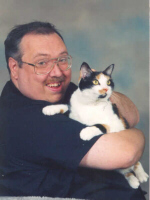24. Conscience
What is Conscience?
In speaking a bout conscience, it might be best at first to say what it is not. It is not the comical stereotype of an angel on one shoulder and a devil on the other, whispering opposing advice. Neither is it merely an arbitrary feeling that something is either good or bad. Conscience is an attempt of the mind to make an appropriate judgment about whether an action is either right or wrong. True judgment demands knowing the facts and deliberating (applying moral standards) over them prior to an action. We are obliged to follow our conscience even when a false judgment is made. However, as soon as we learn otherwise, (that an action we thought good is actually bad), we must accordingly adjust to agree with a now properly formed conscience. Judgment can be flawed for all sorts of reasons. Nevertheless, we are obliged to follow our conscience even when a false judgment is made. As soon as we learn about our error, that an action we thought good is actually bad, we must accordingly adjust to agree with a now properly formed conscience.
What are some of the ways we can make misjudgments? Well, we might be perplexed, scrupulous, lax, etc. When in doubt, we suspend judgment and do not act until a "certain" conclusion has been reached. Conscience needs to be properly informed and a judgment must be made according to the appropriate law (i.e. natural law, the ten commandments, and especially the law of love).
We are Accountable
In all of visible creation, only human beings are called by God to accept responsibility for their actions. We are neither pre-programed robots nor animals who live according to blind instinct. We have been given free will and an intellect capable of discerning God's design from both the natural order and from revelation.
Set Free By the Truth
Given the present situation, in the Scriptures and Tradition, we find guidance for ourselves as we continue upon our search to discover what is worthy of us as human beings. In the formation of conscience, the Catholic Christian needs to consider that the power to bind or to loose from sin which was given the apostles, still resides in the Church, and principally in the bishops under the direction of the successor of St. Peter. Rather than a principle of enslavement, it needs to be viewed as one of liberation. "The truth will set you free" (John 8:32).
A Dynamic Christian Conscience
There are extremes in conscience which might not be viewed as healthy. The "static" conscience would have the Church spoon-feed everything. This dismisses the power of the Spirit to enlighten us; it is a fleeing of responsibility. The "dynamic" conscience goes to the other extreme of embracing revolution or even rebellion. No one can tell them what to do, even the Church! The true path is between these two. "We can qualify this as the dynamic Christian conscience. This is the conscience which leads us to have a responsible attitude to someone, to Jesus, to the community, to the Church, etc. Every person who fits into this category feels a responsibility for a progressive search and striving to live out a life ideal according to the mind of Christ" (Formation of Conscience by the Canadian Bishops).


0 Comments:
Post a Comment
<< Home